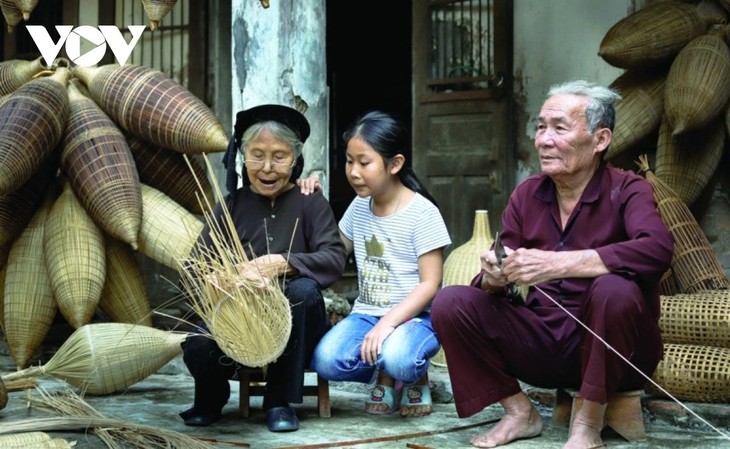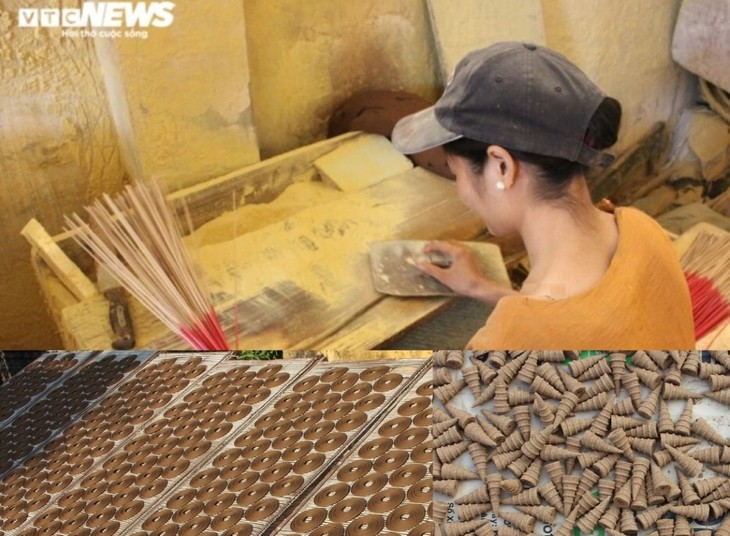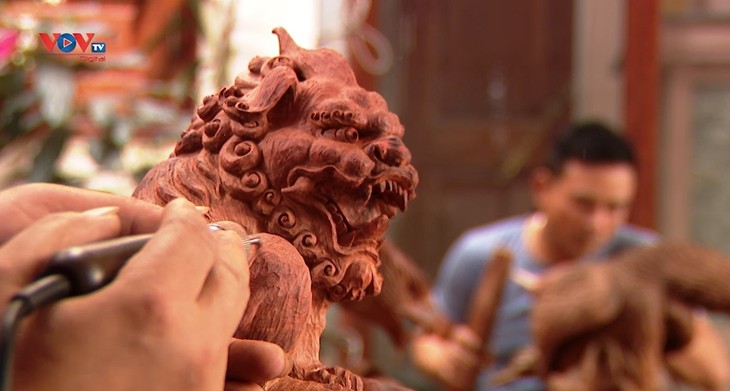(VOVWORLD) - Hung Yen has many traditional craft villages, whose products typify the beauty of the age-old countryside. Many craft villages have been preserved, inherited and developed.
 Thu Sy villagers from 5- or 6-year-old child to the elder can make fish pots. (Photo: Doan Thi Trung/VOV) Thu Sy villagers from 5- or 6-year-old child to the elder can make fish pots. (Photo: Doan Thi Trung/VOV) |
Thu Sy village, in Tien Lu district, Hung Yen province, 60 kilometers from Hanoi, has a 200-year tradition of making fish pots.
A fish pot is used in Vietnam’s northern delta provinces to catch shrimp and fish. The villagers also make other rattan and bamboo items for fishing purposes. Village elders say the craft requires skill and meticulousness.
Finished products are smoked to make them darker and more beautiful and enhance their durability.
Artisan Luong Son Bac, who has spent his life weaving fish pots in Thu Sy village, said, “The smoking fire must not flare up. The smoke must be thick. The split laths must be spread and moved back and forth evenly. That gives the fish pots a beautiful color.”
The finished pots are arranged in bunches like flowers and sold from bicycles inside and outside the province. Today fish pots are no longer widely used to catch shrimp and fish. They’re sold to decorate restaurants and shops, or used as props in historical films. Thu Sy products are popular in Vietnam and exported to the US, Singapore, Japan, China, and India.
According to artisan Bac, though the craft is no longer a major source of income, villagers continue to weave fish pots in their free time. Young villagers learn and practice the craft to preserve it.
He told VOV, “I will continue this profession until I die because I love it very much. The craft was passed down from my ancestors. I’ll teach the next generation so it won’t die out.”
 Thon Cao villagers mainly make incense sticks and incense coils. (Photo: VTC News) Thon Cao villagers mainly make incense sticks and incense coils. (Photo: VTC News) |
Not far from Thu Sy village on the left bank of the Red River is Thon Cao village, one of the largest incense-making villages in Vietnam. There are 200 households engaged in the traditional craft. They make many types of incense – compressed incense, fast-burning incense, slow-burning incense, and incense coils with a diameter of up to 50cm that can burn continuously for 24 hours. The techniques of mixing the ingredients vary from family to family.
Tran Minh Thao, an incense maker in Thon Cao, said, “The main ingredients are herbs such as agarwood, silver needle, sandalwood, star anise, and cinnamon, but each establishment creates a characteristic fragrance for its products. Our incense is made of 100% medicinal herbs that are friendly to the environment and healthy.”
Thon Cao’s incense products are sold throughout Vietnam and exported to many countries.

Artisans of Hoa Phong village are completing the final stage of making their products. (Photo: VOVTV)
|
Hoa Phong carpentry village in My Hao district in Hung Yen province is one of best-known craft villages in the northern delta region. From massive wooden blocks, Hoa Phong’s skilled and creative craftsmen create elaborate and attractive fine art pieces.
The production process is divided into many stages of which shaping is considered the most difficult and requires the most imagination and creativity, says carpenter Nguyen Van Manh.
“The most important thing is to have an artist’s eye. One wooden block is much like any other. But under the eyes and hands of a skilled artisan, the block becomes a product whose beauty users can feel,” according to Manh.
The wood products of Hoa Phong have gained prestige and the trust of customers inside and outside the province, says artisan Nguyen Van Du. Du said he is so happy to know that the products he has put so much effort into are well received by customers in Vietnam and in other countries. Vietnamese handicrafts bought by foreign consumers teach them something about his homeland.
Hung Yen has other unique craft villages, such as Ban soy sauce-making village in My Hao town, and Long Thuong bronze casting village in Van Lam district. Each village is preserving and passing on traditional crafts to future generations.